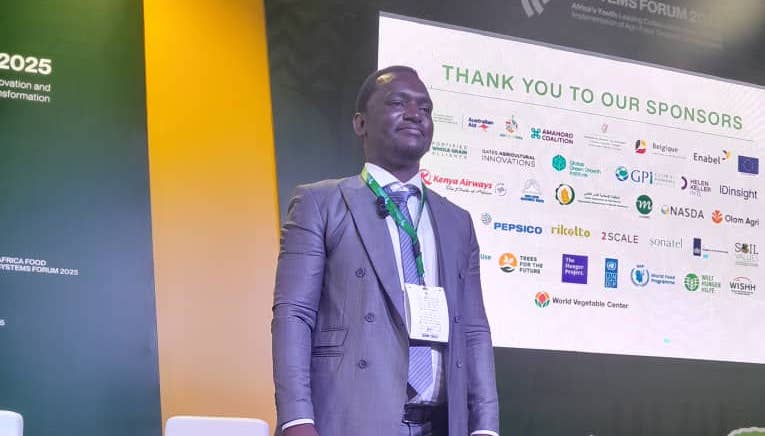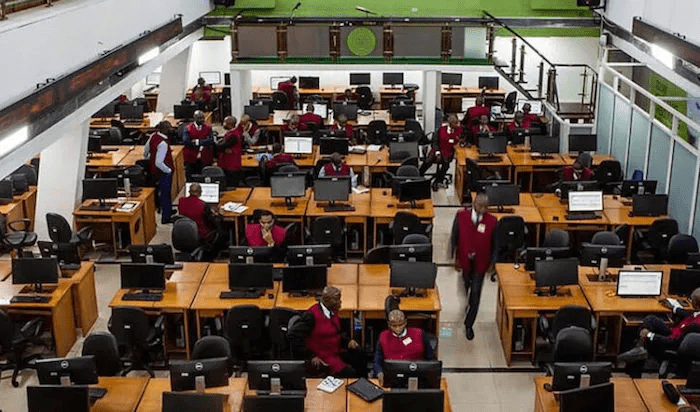ADAMU RABIU argues for inclusion and accountable governance
As Nigerian youth converge at the National Youth Conference in Abuja, one question will dominate the theme of “Governance and Political Participation”. How do we stop our haemorrhaging politics, and rescue our dying democracy?
As a presenter submitting this policy framework to the Conference Planning Committee, I offer more than diagnosis, I propose an actionable rescue plan to rescue Nigeria’s political exclusion crisis, where money bags hijack parties, delegates sell their conscience for peanuts, all other parties including the ruling party are uncoordinated and are basking in selfish interest, the political terrain is uneven and full of potholes, the elections are winner-takes-all-scam, the IDPs and PWDs are disenfranchised lacking any relevance, and state electoral commissions mock accountability, these issues demand immediate intervention and hence the need for a Youth-Led road map!
Twenty-two years after shaking off military rule, Nigeria’s democracy remains critically ill. The symptoms are undeniable, including delegate buyout, obscene monetization of politics fuelled by plundered public funds, monstrous INEC electoral subvention, abysmal voter turnout, rampant vote-buying, brazen electoral violence, and a pervasive sense of disillusionment, particularly among our youth. Our political space is systematically skewed, barring the door to equitable participation for young people, women, persons with disabilities (PWDs), internally displaced persons (IDPs), and the vast majority of political parties operating on the fringes. This is not just unfair; it is a constitutional betrayal and a ticking time bomb for our nation’s stability and future prosperity.
Look around. Our democracy is captured by money bags and entrenched elite’s stranglehold party structures, shutting out fresh, credible voices, especially the youth who constitute our demographic majority. Internal party democracy is a cruel joke, decided in naira-filled rooms, not open primaries. Politics has become a prohibitively expensive auction, fuelled by a dangerous monetization that sidelines principle and elevates corruption. The supposed umpire often lacks the independence or will to enforce its own rules.
The exclusion is systemic and scandalous. Internally displaced Nigerians, victims of conflict and instability, are routinely disenfranchised, denied their fundamental right to participate in shaping their own future. Minority groups are sidelined. Even at the grassroots, the charade of local government elections conducted by compromised state electoral commissions, like the travesties we have witnessed recently in local government council polls in Bauchi, Kaduna States and elsewhere, mocks the very idea of representative governance. This violates Section 14(2)(a), Section 15(1), Section 40, Section 153(1)(f), Section 221, Section 318(1), Seventh Schedule of the 1999 Nigerian Constitution (as amended) and also Article 11, Article 17, Article 19, Article 27 of the African Charter on Democracy, Elections and Governance and Article 7, Article 21 of the UN Charter on Human Rights.
This status quo is unsustainable. Agitation from the sidelines is not enough. We need a concrete, actionable road map for inclusive political participation and accountable governance.
Here is how our Youth-led prescription will stop the haemorrhage and lead to democratic renewal: One, a national charter for Inclusion. We urgently need a national multi-stakeholder political participation charter (NSPPC). To be developed collaboratively by the Federal Ministry of Youth Development, the Inter-Party Advisory Council (IPAC), INEC, Civil Society, and the Nigerian Youth Parliament. This Charter must establish minimum, enforceable standards. It should mandate and ensure genuine internal party democracy, guarantee equitable access and participation for all parties, and crucially, recognize, enfranchise, and provide free access to political platforms for youths, women, IDPs and other marginalized populations. Importantly, multi-party participation in governance must be institutionalized, moving beyond the winner-takes-all mentality. Two, Root and Branch Party & Electoral Reform. We need legislation compelling all political office holders to publicly submit “Project Plans” before assumption of office and detailed “End-of-Term Reports”, real accountability, not empty promises. All parties must adopt and enforce “Letters of Credence” for candidates and not be misled by bank balances. Critically, the obscene monetization fuelled by arbitrary, prohibitive nomination fees charged by state electoral bodies (like KAD-SIECOM’s infamous example) must be outlawed. Compliance with Section 7 of the Constitution and the Electoral Act 2022 regarding free and fair LG elections is non-negotiable and requires immediate enforcement mechanisms.
Three, A Digital Democracy Revolution. Leverage technology for transparency. Establish a “National Digital Democracy Hub (NDDH) “. This platform would monitor and publicly report electoral activities in real-time, track campaign finances (exposing illicit flows), and audit internal party processes. Crucially, it could host gamified civic education modules, making political literacy engaging and accessible, especially for young voters, combating apathy and empowering informed participation.
Four, Empowering IPAC Youth and Grassroots Mobilization. The IPAC Youth Directorate, at national and state levels, must be formally institutionalized, funded, and mandated as vital civic intermediaries. Their role will be driving nationwide media literacy, political education, and democratic sensitization campaigns, particularly targeting excluded groups. They are the bridge between formal institutions and the disillusioned populace.
What Is the expected cure? It is a democracy that works, that will witness increased participation from youth, women, PWDs, and IDPs. A stronger internal party democracy, reduced electoral violence, reduced vote-buying, and impunity. With a better-informed electorate and transparent party structures. Ultimately leading to better governance and accountability.
The implementation road map is clear and actionable: Phase 1 – Draft the NSPPC in collaboration with all stakeholders.
Phase 2 – Develop and implement INEC-IPAC-CSO party audit guidelines.
Phase 3 – Launch the National Digital Democracy Hub and civic tools.
Phase 4 – Amend the Electoral Act to codify the youth, IDP, and marginalized populace and all other policies formulated through this Youth-Confab process.
In conclusion, the future of Nigeria’s democracy hangs in the balance. We cannot afford another cycle of exclusion and disillusionment. The energy, innovation, and demand for accountability embodied by Nigeria’s youth are not a threat, they are the most potent medicine for our ailing democracy.
This proposal, born from frontline experience with IPAC, grassroots mobilization through the platform, Bakondare Speaks, various researched articles published in major media outlets such as Premium Times, Daily Trust, Guardian, Punch, THISDAY, Vanguard and Leadership Newspapers. And engagement with democratic principles, offers a practical path forward. It is time to move youth voices from the fringes of protest to the centre of policy design and implementation and build a Nigeria where democracy truly works for All Nigerians.
Before the submission of the Final Report to the President come August 12th, 2025 which is the International Youth Day, I wish the best for all Nigerians and call on all delegates at the National Youth Conference to Embrace and Endorse this road map, and policymakers to implement it. Our democracy cannot wait and Nigeria’s survival depends on turning the 2025 National Youth Conference gathering into more than a talk- shop but a genuine democratic Reset!
Hon Rabiu (Bakondare) is a Monitoring & Evaluation Specialist on Policy, Finance, Risk, Politics, Good Governance, and writes from Kaduna


